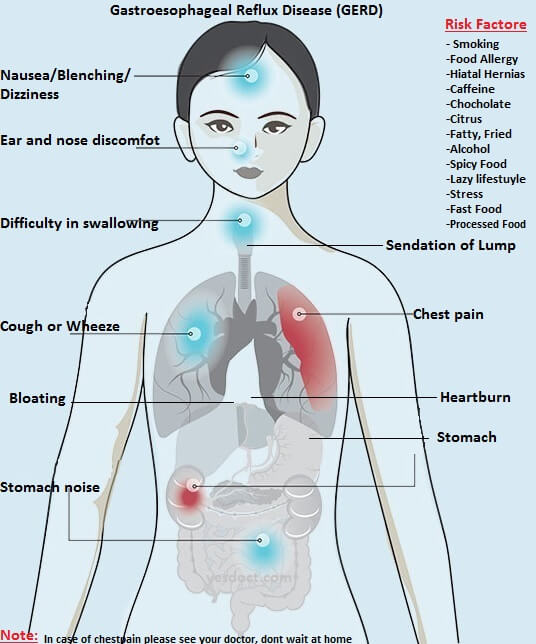There are three common GERD symptoms that many people may suffer from
These are heartburn, regurgitation of food into your mouth and acid reflux. Heartburn is characterized by a burning sensation in the chest or throat while regurgitation is the refluxing of acid or other fluids through your esophagus. Acid reflux is when your upper esophageal sphincter relaxes, causing an abnormal increase in acid in the stomach. It is often accompanied by regurgitation of stomach contents, pain in the chest and throat, difficulty swallowing, or sore throat.
Most sufferers will experience all three of these symptoms at least once in their lifetime. However, it can be difficult to determine if you are experiencing one or more of them or if you are experiencing none at all. There are several factors that affect how often you experience GERD symptoms and it is important to learn as much about your condition as possible to help you identify if you are experiencing any of them. If you are unsure, you should contact your doctor so he or she can assess your symptoms and help you decide if there is a medical reason for them.
Heartburn is one of the most common symptoms of GERD. Heartburn can be very severe if you do not know what you are experiencing. The symptoms of heartburn include nausea, vomiting, chest pain, wheezing and chest discomfort. When a person suffers from heartburn on a regular basis, it usually occurs several times per day. You should also watch for heartburn that tends to occur in response to certain foods or drinks. For example, if you eat spicy foods or eat a lot of foods that contain dairy products, your risk of heartburn increases dramatically.
Regurgitation of food into your mouth is another common symptom of GERD. This happens when stomach acid or gastric juices regurgitate back into the esophagus. The result is a feeling of burning, soreness or pain in the mouth and throat, sometimes accompanied with coughing, hoarseness or choking. This symptom can cause problems with speaking and swallowing. People who suffer from GERD tend to be more sensitive to cold, heat or pain.

If you're wondering if these symptoms are normal or if you need to see a doctor, keep in mind that everyone is different and some people will experience all three of these symptoms. while others will only experience one or two. It is important to talk to your doctor about the frequency of your symptoms so that he or she can help you determine if you are experiencing any other symptoms. such as difficulty swallowing. Because every organism is unique, there are many reasons why GERD occurs, including stomach acid reflux, regurgitation of food or other fluids back up the esophagus.
If you find it difficult to swallow or speak, there may be a number of other problems, such as a hernia in the throat or tonsils. If GERD is causing you chest pain, check for laryngitis, which occurs when mucus builds up in your throat and causes pressure and difficulty breathing.
You should also check for heartburn after eating heavy meals or lifting heavy objects
There are also times when the symptoms of GERD can be caused by the medications you are taking. If you are taking any medications to treat cancer, HIV, or another medical condition, you should talk to your doctor hyundai-motor about how this might affect your GERD symptoms. as these medications can cause acid reflux and regurgitation of food into the esophagus. if they are a problem for you, they can be adjusted by changing the dose, lengthening or shortening the duration of the medication, and even possibly changing the medication itself.
If you think your symptoms of GERD may be caused by acid reflux, there are several ways to treat the condition, such as dietary changes, natural remedies, surgery, or even surgery. This is something to keep in mind when thinking about ways to prevent recurrence of GERD in order to get your life back on track.

